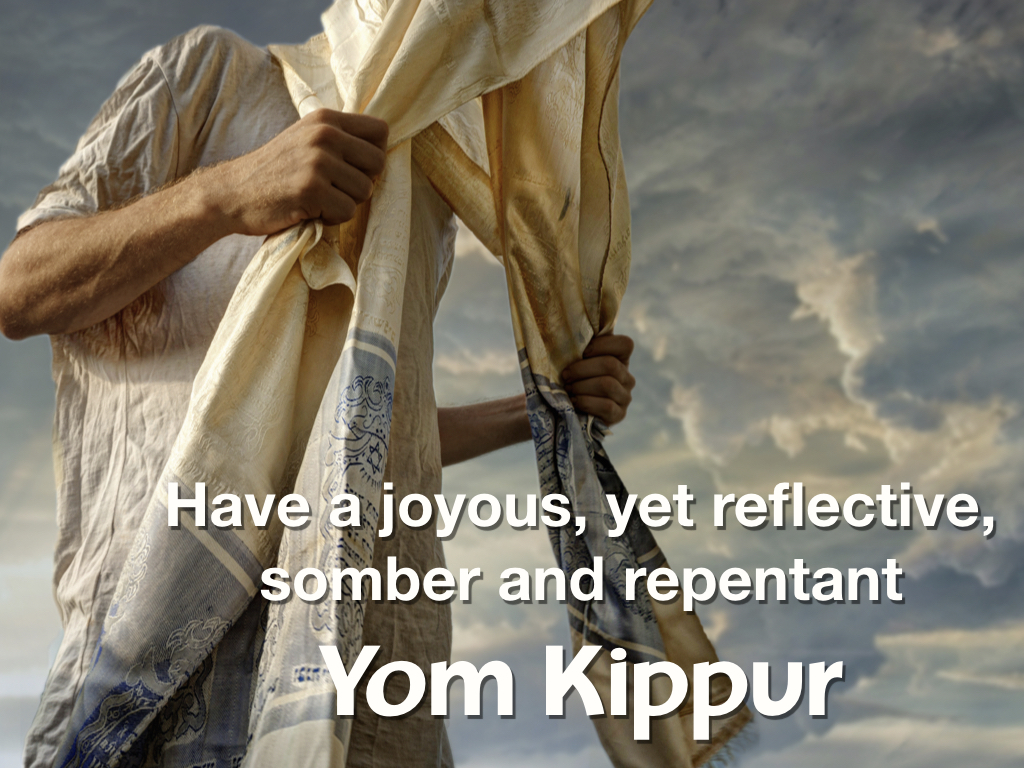
It is here! A day of joy or sorrow depending on whose spiritual team you are on—YHVH’s our the devil’s.
On Monday, October 14, 2024 we will be celebrating Yom Kippur, 2024 according to the visible crescent new moon, abib barley, ancient Torah-based calendar. Leviticus 23:26 commands YHVH’S people to celebrate Yom Kippur or the Day of Atonement on the tenth day of the seventh month on the biblical year. Exactly 10 days ago, the new moon was spotted in Israel making October 14, then, the tenth day of the seventh month. In five days we will begin celebrating the Feast of Tabernacles (Chag haSukkot). HalleluYah! To learn more about the Day of Atonement so that you can celebrate it with meaning and joy, please read on.
But before we proceed to our list of links to a whole boatload of free instructional materials on Yom Kippur, so that you can celebrate it with purpose and meaning, we must first address some destructive heresies regarding some erroneous so-called biblical calendars out there. The sword of the Spirit is sharp and two-edged, for it divides soul and spirit, between lies and truth, between fact and fiction, between the Word of Elohim and the traditions of men. Some people may find the truth to be offensive, but who are we aiming to please here? YHVH or men? Let us be those who prefer the praise of YHVH Elohim over those of men! Selah.
In the Messianic, Hebraic roots or pro-Torah Christian community there is much debate, strife and confusion over biblical calendars, sadly. We refuse to be part of this. We give the biblical reasons for why we adhere to the biblical visible new moon, abib barely calendar by giving you the most accurate information from the Bible that is possible, then we allow you to decide for yourself what you will do. We are not your judge in these matters. We speak the truth and let the chips fall where they may. Each us is eventually and ultimately answerable to YHVH for our actions be they good or bad with regard to serving and obeying him.
That said, I can say with full assurance and authority that all the various designer, flavor of the month calendars out there except one are based on ignoring Scriptures that disagree with their premise, twisting Scriptures including Hebrew word meaning, or relying on the traditions of men and extra-biblical sources without which none of these non-biblical calendars will stand against the Truth of the Bible. Let me give you some examples of what I mean.
In my articles and videos on the new moon, abib barley calendar, I prove the validity of this calendar solely from the Bible. Yes, I quote a few extra-biblical sources as confirmation, but these are not needed to prove the point as you will see if you read or watch the materials that I present. This is not the case with the any of the other calendars out there. For example,
- The rabbinic Jewish calendar currently in use by Judaism worldwide was created in the fourth century AD and was approved by Emperor Constantine. It is an inaccurate calendar. This year, for example, the Jews are celebrating a pseudo Yom Kippur on the eighth day of the seventh month, not on the tenth day as the Torah commands. So discard this calendar.
- Then there is the calendar based on the astronomical conjunction of the new moon. This too is a non-biblical calendar. Those who adhere to this calendar either twist or ignore the Scriptures that prove that the new moon must be seen. It is a visible, not an invisible, sign in the heavens that determines the beginning of the new month.
- Then there is the calendar that is based on the sun’s equinox. Again, no matter how you search or twist the Scriptures, the Bible makes no mention of the equinox.
- Then there is the Zadok, Qumran or Enoch calendar. Again, this calendar relies solely on extra-biblical sources as well as the twisting of Scriptures, the deliberate mistranslating of Hebrew words to mean something that they do not mean or the flat-out ignore of Scriptures that render this calendar invalid.
- There are bevy of other calendars out there too such as the Noah calendar, the eternal truth calendar, the lunar Sabbah calendar and too many more to mention here.
- Enough said. Either we follow the whole Truth of the Bible based on solid biblical and linguistic research or we don’t. The choice is yours.
For those who want to learn more about both the biblical calendar, the biblical feasts and Yom Kippur, we invite you to check out these free resources:
- https://www.hoshanarabbah.org/teaching.html#feast
- https://www.youtube.com/playlist?list=PL5EzE5DQnrHfWWbczzkRo6IOnglxhbRfM
- Also look for our podcasts on Yom Kippur on Apple and Spotify podcasts. In the search engine on each site, type in “Hoshana Rabbah” and you will find us. May YHVH bless YOU as you seek him and his Truth!






